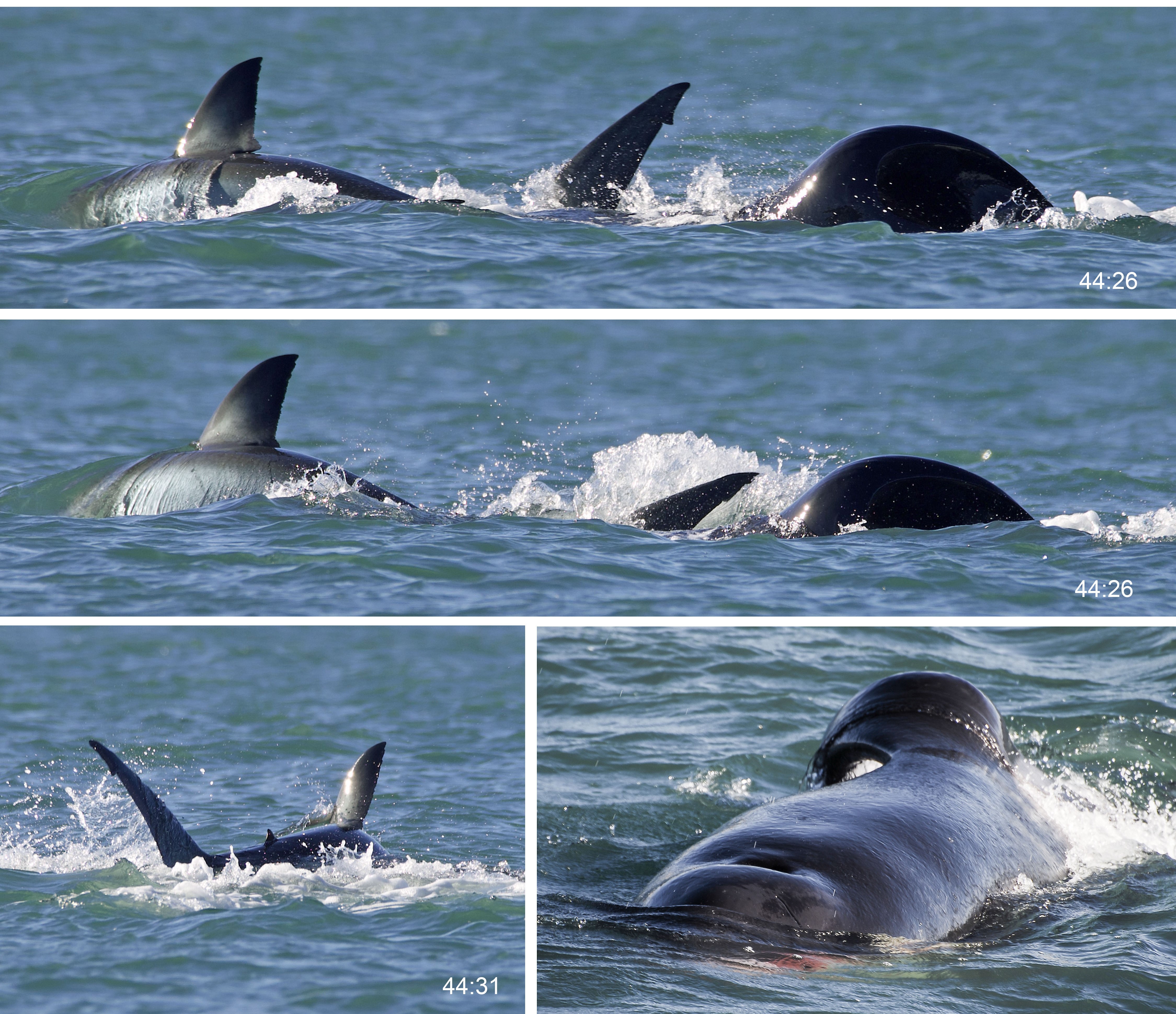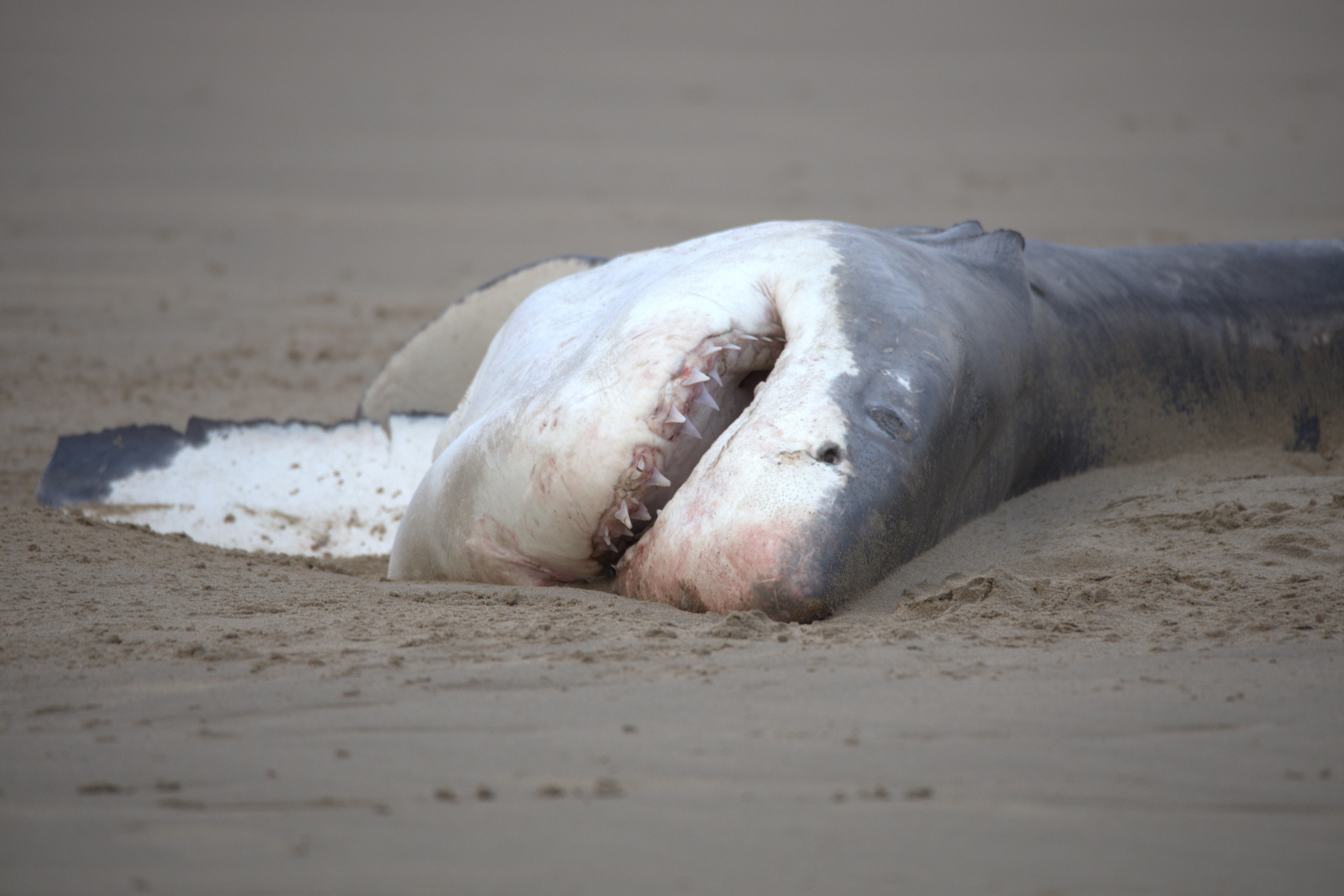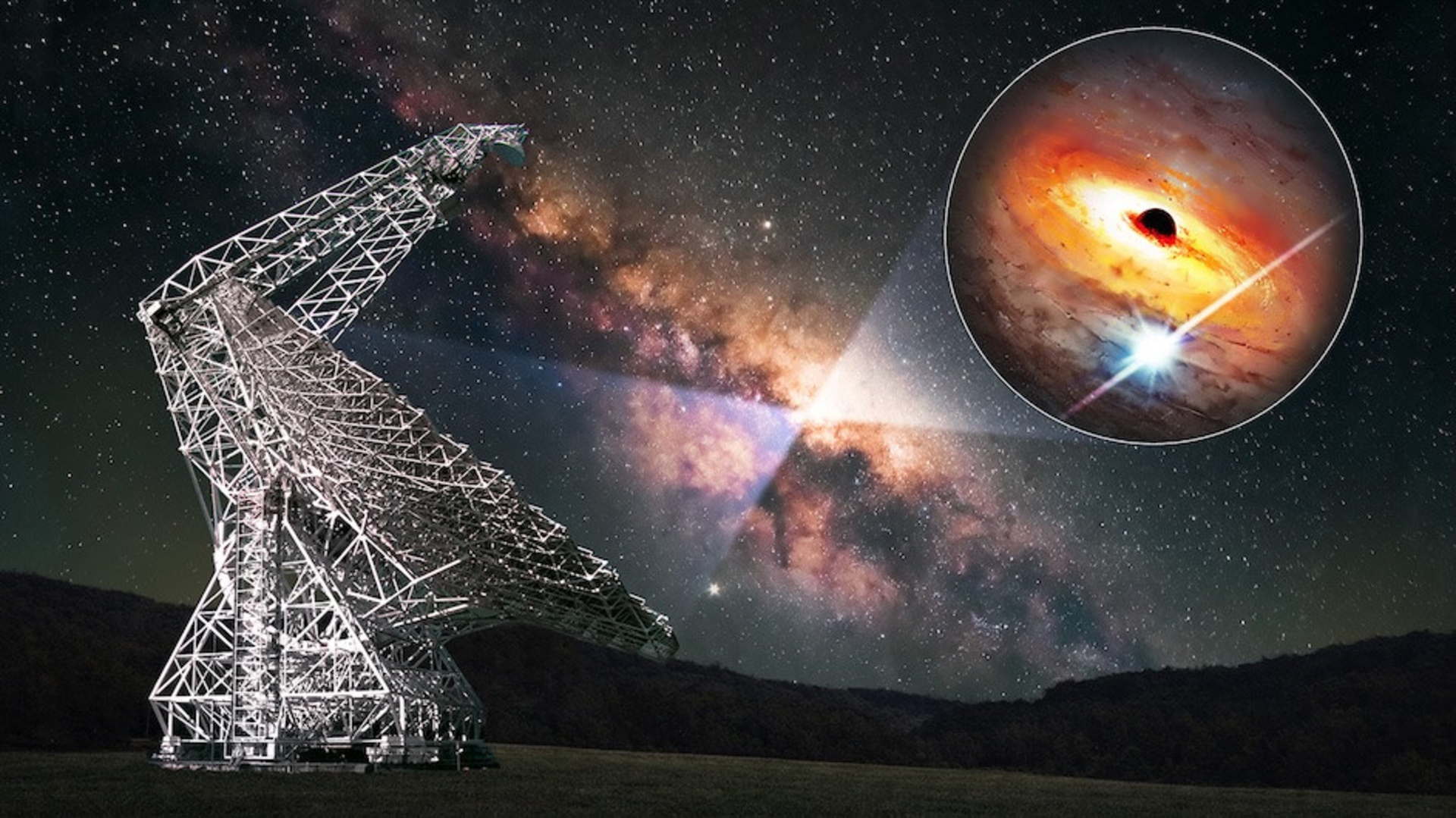Great white shark gets liver torn out by lone orca in under 2 minutes in shocking shift of hunting methods
Disturbing footage shows the moment a single orca chased down a great white shark and killed it, then swam away with the shark's liver in its jaws.
Get the world’s most fascinating discoveries delivered straight to your inbox.
You are now subscribed
Your newsletter sign-up was successful
Want to add more newsletters?

Delivered Daily
Daily Newsletter
Sign up for the latest discoveries, groundbreaking research and fascinating breakthroughs that impact you and the wider world direct to your inbox.

Once a week
Life's Little Mysteries
Feed your curiosity with an exclusive mystery every week, solved with science and delivered direct to your inbox before it's seen anywhere else.

Once a week
How It Works
Sign up to our free science & technology newsletter for your weekly fix of fascinating articles, quick quizzes, amazing images, and more

Delivered daily
Space.com Newsletter
Breaking space news, the latest updates on rocket launches, skywatching events and more!

Once a month
Watch This Space
Sign up to our monthly entertainment newsletter to keep up with all our coverage of the latest sci-fi and space movies, tv shows, games and books.

Once a week
Night Sky This Week
Discover this week's must-see night sky events, moon phases, and stunning astrophotos. Sign up for our skywatching newsletter and explore the universe with us!
Join the club
Get full access to premium articles, exclusive features and a growing list of member rewards.
New footage captures a lone orca killing and eating a great white shark in just 2 minutes, revealing they do not need to hunt in packs to take down one of the ocean's most formidable predators.
In the video, the shark desperately attempts to flee as the orca follows close behind, before disappearing beneath the surface. Shortly after, the orca is seen swimming away carrying a liver in its jaws.
In a study published March 1 in the African Journal of Marine Science, scientists confirmed this case was the first ever record of a lone orca (Orcinus orca) hunting and consuming a great white shark (Carcharodon carcharias) without the help of its podmates.
The incident took place in June 2023 when researchers on a tourist boat saw two orcas — known as Port and Starboard because of their collapsed dorsal fins — south of Seal Island, South Africa. The two orcas already have a reputation for attacking great whites and feasting on their nutrient-rich livers — a new behavior that has led great whites to abandon a popular hunting ground.

After approaching the orcas, the researchers noticed an oily substance floating on the surface, birds diving into the water and "the distinct smell of shark liver," according to the study. The researchers speculated that the pair of orcas may have already killed a shark before the boat arrived.
"Once you've smelled it, you'd recognize it again," lead author Alison Towner, a marine biologist at Rhodes University, told Live Science in an email. She explained that shark liver smells rich, fatty and not altogether unpleasant, but very hard to describe.
Nearly an hour later, the boat saw an 8-foot-long (2.5 meters) juvenile white shark at the surface with Starboard chasing behind. "The killer whale pushed the shark forward by its pectoral fin while it thrashed on the surface," Towner said.
Get the world’s most fascinating discoveries delivered straight to your inbox.
By grabbing the shark's pectoral fin and shaking it, Starboard tore the shark open in precisely the right spot to remove its liver.
Related: Great white shark ripped in 2 was 'loaded' with orca DNA, scientists say
A few minutes later, a shark cage diving boat that happened to be nearby saw Starboard swim past "with a bloody piece of peach-coloured liver in its mouth," according to the study. Port stayed around 330 feet (100 m) away throughout and was not involved in the predation.

"The moment Starboard rapidly preyed on my favorite shark species was both devastating and intensely powerful," Esther Jacobs, the founder of shark conservation initiative Keep Fin Alive, who saw the attack, said in a statement.
Although the onlookers didn't see the moment Starboard removed the shark's liver, as this happened underwater, Towner believes the shark would've been killed instantly.
The exact mechanism of how orcas shaking a shark can tear it open is still unclear, but more clues arrived the next day when the carcass of a different great white shark — this one measuring 11.5 feet (3.5 m) — washed up nearby. "The interesting stretch marks on its flank may suggest torsion induced by thrashing," Towner said.
Orcas target sharks' fatty livers because of their high nutritional value. "Shark livers are packed with rich, oily lipids, making up to one third of their body mass in some species," Towner said.
Sometimes known as the wolves of the sea, orcas have strong social bonds and usually hunt in groups. While they have been known to hunt other species alone — including seals, porpoises, and penguins — this is the first record of a single orca killing a great white. In previous accounts, attacks have involved between two and six orcas.
This finding may have important conservation implications. "Altering the top predator balance has cascading impacts," Towner said. "With most sharks already facing various man-made pressures, orca predation adds further strain and could be a tipping point in some regions for some species."

Melissa Hobson is a freelance writer who specializes in marine science, conservation and sustainability, and particularly loves writing about the bizarre behaviors of marine creatures. Melissa has worked for several marine conservation organizations where she soaked up their knowledge and passion for protecting the ocean. A certified Rescue Diver, she gets her scuba fix wherever possible but is too much of a wimp to dive in the UK these days so tends to stick to tropical waters. Her writing has also appeared in National Geographic, the Guardian, the Sunday Times, New Scientist, VICE and more.
 Live Science Plus
Live Science Plus











